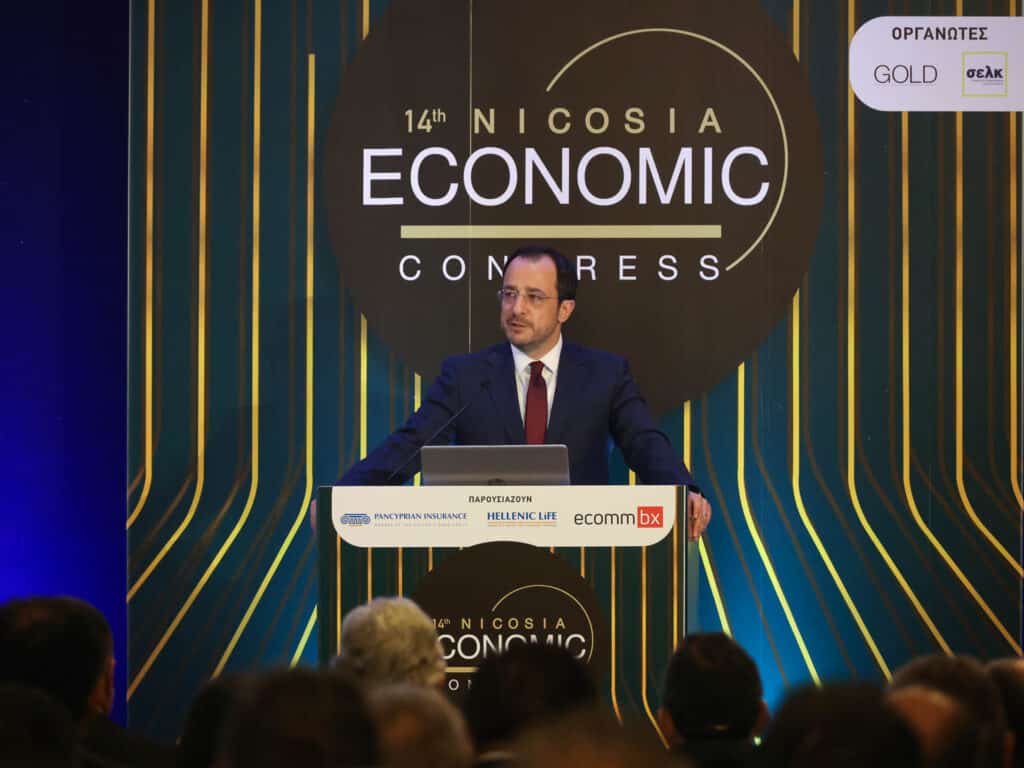Egypt desperately needs a major gas discovery to shore up its declining production
The submission of the updated development plan for the Aphrodite gasfield by Chevron at the beginning of April, and the subsequent statement by Energy Minister George Papanastasiou that the earlier “difficulties have been overcome” is good news not only for Cyprus but also for Egypt.
Until last year Egypt was an exporter of LNG. But increasing domestic demand and three years of continuous decline in gas production have almost put a stop to that. Since its peak in 2021, Egypt’s gas production has declined from close to 200million cubic meters per day (mcm/d) to less than 150mcm/d now, remaining in rapid decline without any sign of recovery. This is equivalent to an average gas production decline of 8bcm/yr.
And this is happening at a time when fast population growth means that Egypt’s energy demands will carry on increasing. Renewables can help, but it will take time before their impact can be felt.
During the hot summer months, domestic demand for gas is expected to approach 200mcm/d, due to its use for cooling to escape extreme heat. Egypt will struggle to provide this, even with gas imports from Israel.
These dire developments have yet again turned the country from an exporter to an importer of LNG.
The last time this happened was during 2015-2017, but the discovery of the giant Zohr gasfield in 2015 reversed that. Not only did Egypt stop importing LNG in 2018, following the start of gas production at Zohr in 2017, but by 2021/2022 its LNG exports rose to 9 billion cubic metres per year (bcm/yr). With high gas prices, these exports earned the country $8billion, much-needed revenues in 2022.
But this was not to last. Declining gas production reduced LNG exports by over 50 per cent in 2023. Gas production at Zohr has now slumped to about 56mcm/d and is expected to fall further to 45mcm/d – half its design capacity – by the end of 2024. As a result, LNG exports have shrunk to very low levels.
Even more importantly, Zohr is now estimated to hold only 309bcm proved reserves, just over one third of the 850bcm in-place reserves announced by Eni when the gasfield was discovered in 2016. At this level, Zohr ranks behind Israel’s Leviathan, with 480bcm proved reserves, and Tamar, with 315bcm.
And there is more bad news. Drilling of Eni’s high-expectation Orion well was unsuccessful. Egypt still desperately needs a major gas discovery to shore up its declining production.
As a result, Egypt is unlikely to be able to export any LNG to Europe this summer, at a time that, due to its dire economic situation, such exports would have provided the country with much-needed earnings. And on top of that, gas supply shortages are the cause of frequent power blackouts.
But Chevron may be coming to the rescue. It is planning to invest $3 billion over two years, starting in 1H 2024, to develop the Nargis gasfield it discovered with Eni offshore Egypt last year. It is also expanding Tamar production in Israel, with most gas committed for export to Egypt. Despite the political tensions due to the Gaza war, Israel has increased its gas exports to Egypt to 6.3bcm in 2023 and these are expected to exceed 20bcm/yr by 2027.
In the meantime, in a major shift, Egypt is fast-tracking sourcing of FSRUs to enable the import of LNG and ensure adequate gas supplies for cooling during the summer. It has already imported two cargoes of LNG this year. Without such imports, the country risks experiencing severe power blackouts.
In addition, steps recently taken by the government could potentially ramp up gasfield discoveries and production and thus eventually curb the need for imports. But that may take time.
Nevertheless, to ensure longer-term energy security Egypt still needs more gas. This is why gas exports from Cyprus have gained such importance and urgency.
Opportunity for Cyprus
These developments provide Cyprus with an opportunity to export gas to Egypt’s receptive market and in the process gain major political capital. This is a prime case where “energy can facilitate peace, stability and prosperity in the region.”
Natural gas is critical to Egypt’s future energy security but also to its political stability. Recurrent gas and fuel shortages and power cuts contributed to Morsi’s downfall in 2011. This weighs heavily on the minds of Egypt’s rulers.
Egypt and Cyprus have historical ties of friendship and cooperation that go back to antiquity. The export of gas from Cyprus to Egypt could strengthen these ties in much the same way as the export of Israeli gas has brought Egypt and Israel closer together, even in the midst of the Gaza war.
Between Aphrodite and Cronos, Cyprus has the capacity to export as much as 10bcm/yr to Egypt, starting as early as 2027/2028, provided decisions are taken this year. This can make a difference to ensuring Egypt’s future energy security. Cyprus’ ministry of energy should expedite the decision-making process and facilitate speedy development of these projects.
However, there is concern that the Aphrodite JV (Chevron, Shell and NewMed) is playing for time and may not be in a hurry to start development soon. This explains the minister’s response when he was asked “if there is a timeline to respond to Chevron’s improved proposal.” He left things open, referring to “start of planning” so that the JV “can give us a direction and some timetable for the exploitation of the gasfield.” Ultimately the decision will rest with President Christodoulides.
On the positive side, though, Papanastasiou has confirmed that “the problem that has been creating some difficulty in the Aphrodite development plan has been overcome.” He also said “we want to respond as soon as possible.”
This was confirmed by Christodoulides at the 14th Economic Congress in Nicosia this week. He said “the government’s discussions with Chevron are on track” and expressed the hope that there will be announcements soon.
Development of the block 6 discoveries and export to Egypt may progress faster. Eni CEO Claudio Descalzi requested a meeting with Christodoulides end of April to discuss Eni’s proposals for the development and production plans for Cronos I and II.
The next few months will be crucial for the realisation of the much-talked about plans to develop and export Cyprus gas. But given the past history of building up hopes and hype only to see plans come and go with the gas remaining at the bottom of the sea, at best we should remain cautiously optimistic.
Charles Ellinas is Senior Fellow, Global Energy Center, Atlantic Council








Click here to change your cookie preferences